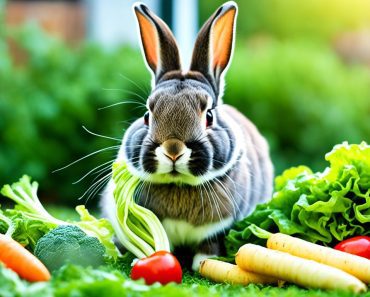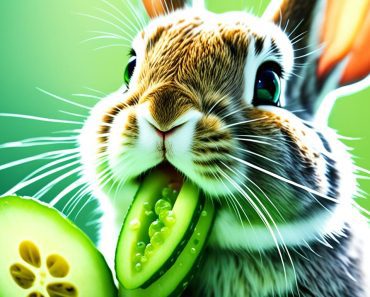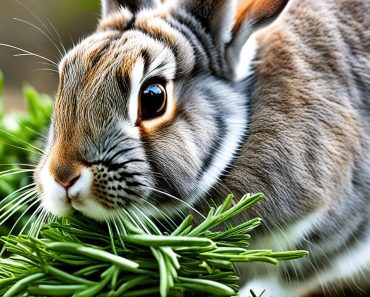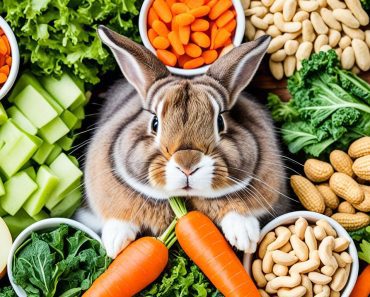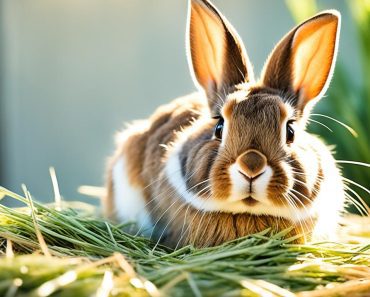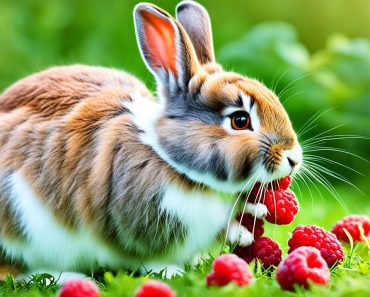Rabbits have a reputation for loving carrots, thanks to Bugs Bunny. However, it’s important to understand that carrots are not a natural part of a rabbit’s diet and should be fed in moderation. In fact, too many carrots can be harmful to rabbits and may necessitate a visit to the vet. This section will explore the best diet for rabbits, the potential risks of feeding them carrots, and the recommended alternatives.
Can Rabbits Eat Carrots? Yes, they can, but only occasionally.
- Carrots are not a natural part of a rabbit’s diet and should be fed in moderation
- Feeding rabbits too many carrots can be harmful and may require veterinary intervention
- There are alternative snacks that are healthier for rabbits
What Should Rabbits Avoid Eating?
While carrots may not be the best choice for rabbits, there are several other foods that should be avoided altogether. Lettuce varieties high in water content and lacking nutritional value, such as iceberg lettuce, should be avoided.
“Lettuce varieties high in water content and lacking nutritional value, such as iceberg lettuce, should be avoided.”
Chard can cause colic and bloating in rabbits, so it’s best to steer clear of this leafy green.
Fruits, which are high in sugar, should not be a regular part of a rabbit’s diet. While they may enjoy the occasional bite of apple or banana as a treat, too much fruit can lead to digestive issues.
Avocado is another food that should never be included in a rabbit’s diet. It is high in fat and can be toxic to rabbits.
Rhubarb is a plant that should be kept away from rabbits as it is poisonous if eaten raw.
Grass cuttings may seem like a harmless snack for rabbits, but they can actually be quite harmful. Grass cuttings can ferment quickly and cause digestive problems for rabbits.
High-carb foods like bread, pasta, and crackers should also be avoided as they can lead to stomach issues for rabbits.
Nuts are another food that rabbits should steer clear of. They are high in fat and can lead to indigestion and other digestive problems.
Commercial rabbit muesli is a popular food option for rabbits, but it is not nutritionally balanced. This can lead to teeth and gut problems for rabbits.
“Commercial rabbit muesli is not nutritionally balanced and can cause teeth and gut problems.”
It’s important for rabbit owners to be aware of these harmful foods and provide a safe and appropriate diet for their pets.
The Ideal Diet for Rabbits
The Rabbit Welfare Association recommends an ideal diet for rabbits that meets their nutritional needs and promotes their overall health and well-being.
At least 80% of a rabbit’s diet should consist of unlimited grass or high-quality feeding hay. Grass and hay provide essential fiber, which is crucial for maintaining a healthy gut and preventing digestive problems. Ensure that the hay is fresh, free from dust, and stored properly to maintain its nutritional value.
Approximately 15% of a rabbit’s diet should include a variety of rabbit-safe leafy greens, vegetables, and herbs. These foods add essential nutrients and variety to their diet. Safe vegetables and herbs for rabbits include carrot tops, cauliflower leaves, kale, romaine lettuce, dandelion leaves, cilantro, parsley, and more. These should be introduced gradually to prevent digestive upset.
Pelleted rabbit food should make up about 5% of a rabbit’s diet. These pelleted foods are specially formulated to provide the necessary vitamins and minerals. Look for high-quality pellets that do not contain added sugars or unnecessary fillers.
It’s important to note that rabbits should have access to fresh, clean drinking water at all times. Ensure that the water is changed daily to maintain its freshness and cleanliness.
The ideal diet for rabbits consists of 80% grass or high-quality feeding hay, 15% leafy greens, vegetables, and herbs, and 5% pelleted rabbit food. Providing a balanced diet that meets the nutritional needs of rabbits is essential for their overall health and well-being.
Benefits of the Ideal Diet:
- Essential fiber for a healthy gut
- Nutrients from a variety of leafy greens, vegetables, and herbs
- Vitamins and minerals from pelleted rabbit food
- Hydration from fresh, clean drinking water
By following this diet plan, you can help ensure that your rabbits receive the necessary nutrients and maintain their optimal health.
The Importance of Hay for Rabbits
Hay is an essential component of a rabbit’s diet, providing numerous benefits that contribute to their overall health and well-being. It plays a crucial role in maintaining a healthy gut and preventing digestive issues in rabbits. The high fiber content in hay aids in digestion and promotes proper bowel movements, reducing the risk of gastrointestinal problems.
In addition to its role in digestion, hay also helps wear down a rabbit’s continuously growing teeth. Rabbits’ teeth have an open-rooted structure, meaning they grow continuously throughout their lives. Chewing on hay helps to naturally grind down their teeth, preventing overgrowth which can lead to dental disease and other oral health issues.
It’s important to note that not all hay is created equal. Owners should provide high-quality feeding hay to ensure their rabbits receive the necessary nutrients. Bedding hay, while suitable for creating comfortable bedding, may lack the nutritional value needed for a rabbit’s diet. High-quality feeding hay, on the other hand, contains essential vitamins and minerals that support a rabbit’s overall health.
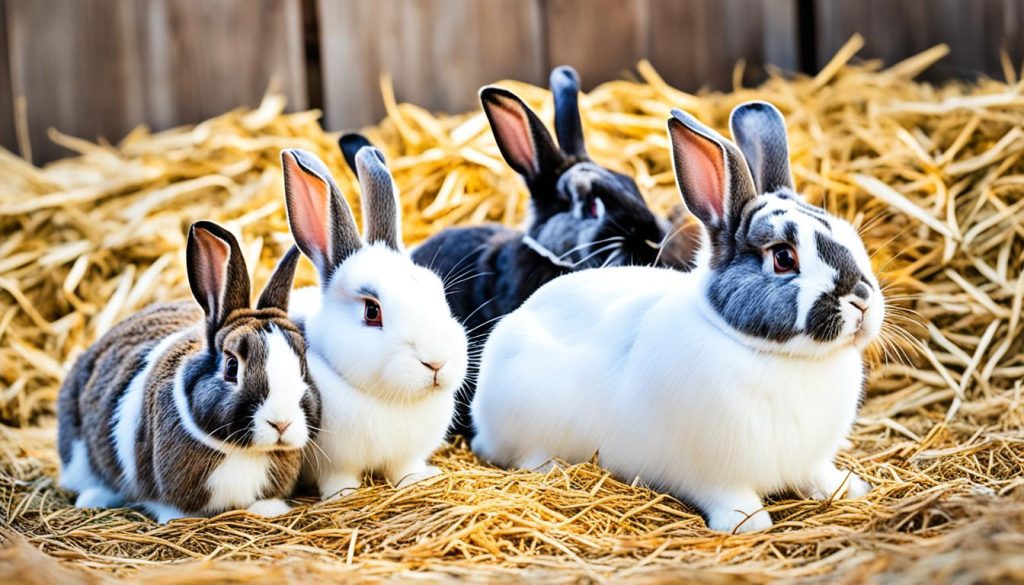
The 2017 PDSA PAW Report revealed that 31% of rabbits are not eating enough hay, which can have detrimental effects on their health. It’s important for rabbit owners to prioritize hay as a primary component of their pet’s diet and ensure that it is easily accessible at all times.
By understanding the importance of hay for rabbits and providing high-quality feeding hay, owners can promote optimal digestive health, prevent dental problems, and contribute to the overall well-being of their furry friends.
Feeding Carrots to Rabbits
While rabbits can eat carrots, it’s important to feed them in moderation due to the high sugar content. Too many carrots can upset a rabbit’s delicate digestive system and lead to health issues. It’s recommended to offer about 1 to 2 baby carrot sticks or thin slices per day to avoid overfeeding.
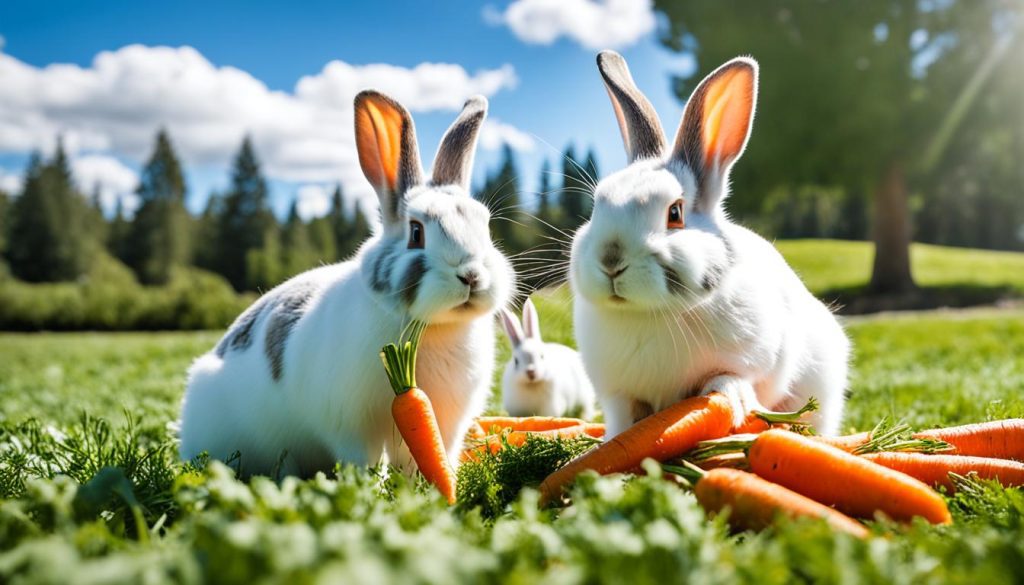
Carrot tops, the green leafy part of the carrot, are safe and can be a nutritious addition to a rabbit’s diet. They are rich in vitamins and minerals, making them a healthy choice for your furry friend. Including carrot tops in their diet can provide variety and additional nutrients.
Cooked carrots can also be given to rabbits, but it’s crucial to keep servings small and infrequent. Cooked carrots should be plain and free of any additives like butter, salt, or spices. These additional ingredients can be harmful to rabbits and should be avoided.
However, it’s important to note that carrot cake should not be fed to rabbits. Carrot cake often contains ingredients like sugar, oils, and other additives that are not suitable for a rabbit’s digestive system. It’s best to stick with fresh, raw carrots and carrot tops as treats for your furry friends.
Can Wild Rabbits Eat Carrots?
Wild rabbits have a diverse diet that consists mainly of fresh foliage and grasses. While carrots are not their preferred choice, wild rabbits can eat carrots when other food options are scarce. Carrots provide nutritional benefits to wild rabbits as they are packed with essential vitamins, minerals, and dietary fiber.
During the spring and summer when leafy greens are plentiful, wild rabbits primarily rely on fresh foliage as their main source of food. However, carrots can still be offered to attract or feed wild rabbits, especially during times when foliage is scarce. It’s important to note that carrots should not be considered a substitute for a wild rabbit’s natural diet.
In addition to carrots, leafy greens such as dandelion leaves, kale, and romaine lettuce are important components of a wild rabbit’s diet. These greens provide vital nutrients and help maintain their overall health and well-being. Offering a variety of leafy greens alongside carrots can ensure that wild rabbits receive a balanced and nutritious diet.
While wild rabbits can eat carrots, they are not their preferred food. Wild rabbits primarily rely on fresh foliage and grasses for their nutritional needs. Carrots can be offered as a supplement, but it’s important to include a variety of leafy greens to provide a well-rounded diet. By understanding the wild rabbit’s natural diet and offering appropriate food options, we can help support their health and well-being in the wild.
Conclusion
While carrots are not a natural part of a rabbit’s diet, they can still be included in moderation. It’s crucial to provide a balanced diet for rabbits that prioritizes hay as the main component. Along with hay, leafy greens and vegetables should be included to ensure nutritional variety. However, carrots should only be given as a tasty and nutritious treat, rather than a significant portion of their diet.
By understanding the dietary needs of rabbits and offering appropriate nutrition, owners can contribute to the overall health and well-being of their furry friends. Remember to consult a veterinarian for specific dietary recommendations and guidance to ensure the optimum care of your rabbits.
Rabbits can enjoy the occasional carrot, but it’s important to maintain a well-rounded diet that focuses on hay, leafy greens, vegetables, and a limited amount of pellets. This approach ensures that rabbits receive all the necessary nutrients while avoiding the risks associated with excessive carrot consumption. With proper diet and care, rabbits can lead healthy and happy lives.

